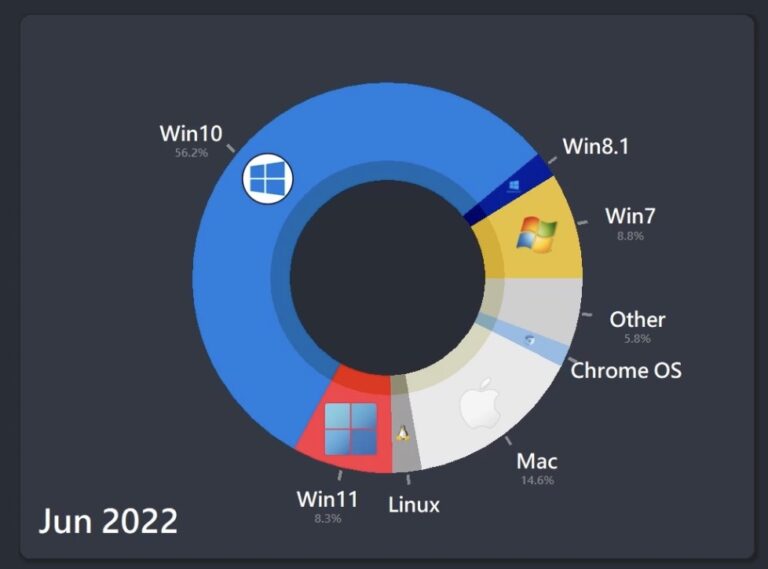The Future Of Apple's Operating System Names

Table of Contents
The Current Landscape of Apple's OS Ecosystem
Apple currently employs a device-specific naming strategy for its operating systems. macOS powers Macs, iOS runs iPhones and iPod Touches, iPadOS handles iPads, watchOS governs Apple Watches, and tvOS manages Apple TVs. This approach offers clear device association, making it relatively easy for users to understand which OS is intended for which device. However, this fragmentation also presents challenges.
-
Advantages:
- Clear Device Association: Users instantly know which OS is for their device.
- Targeted Marketing: Apple can tailor marketing messages to specific device features and user needs.
-
Disadvantages:
- User Confusion: The multiplicity of names can be overwhelming, especially for new users navigating the Apple ecosystem.
- Lack of Brand Cohesion: The diverse names don't necessarily project a unified brand image across all Apple devices.
- Developer Challenges: Developers need to account for variations across different operating systems, potentially increasing development costs and complexity.
Potential Future Directions for Apple's OS Naming
Several paths lie ahead for Apple's operating system naming conventions. The company could choose simplification, maintain the current device-specific approach with refinements, or even introduce entirely new names driven by emerging technologies.
Simplification and Unification
One possibility is a move towards a unified naming structure, perhaps under a single umbrella brand like "AppleOS." Device-specific extensions could then be added (e.g., AppleOS for Mac, AppleOS for iPhone).
- Benefits:
- Easier Brand Recognition: A single, easily recognizable name enhances brand consistency.
- Reduced User Confusion: A simplified system improves user experience and reduces the learning curve.
- Streamlined Marketing: Marketing efforts become more focused and efficient.
Maintaining Device-Specific Names
Alternatively, Apple might retain device-specific names but improve the current system. This could involve making names more intuitive or adopting a more modern branding style.
- Arguments for Retention:
- Established User Association: Users are already familiar with the current names and their associated devices.
- Targeted Feature Marketing: Device-specific names allow for precise highlighting of features relevant to individual devices.
The Influence of Emerging Technologies
The rise of augmented reality (AR) and mixed reality (MR) presents intriguing possibilities. A new operating system designed specifically for AR/MR headsets might require a completely new name, potentially creating a whole new category within Apple's OS ecosystem. Existing names could also evolve to reflect the integration of new technologies and features.
- Future Possibilities:
- New OS for AR/MR Headsets: A dedicated OS for AR/MR devices could be named something like "realityOS" or "visionOS," signaling a new frontier in Apple's technological landscape.
- Evolution of Existing Names: Future iterations of macOS, iOS, and iPadOS could incorporate subtle name changes to reflect advancements in AR/MR integration.
Marketing Implications of Apple's OS Naming Choices
Apple's OS naming strategy is a crucial element of its overall brand identity and marketing efforts. Any changes to the naming system would have significant implications for brand perception, customer loyalty, and marketing campaign effectiveness.
- Key Considerations:
- Impact on Brand Consistency: A unified naming structure could strengthen brand consistency, while retaining device-specific names might dilute it.
- Effect on User Perception and Engagement: A simpler, more intuitive naming system could improve user engagement and satisfaction.
- Cost and Time Implications: A major rebranding effort involving a change in OS names would require significant investment of time and resources.
Conclusion: The Future Remains to be Seen for Apple's Operating System Names
The future of Apple's operating system names remains uncertain. While the current device-specific approach has its advantages, the potential benefits of simplification and unification are undeniable. The emergence of new technologies like AR and MR will undoubtedly play a crucial role in shaping future naming conventions. Apple's decisions will significantly impact brand perception, user experience, and marketing strategies. What are your thoughts on the future of Apple's Operating System Names? Share your predictions in the comments below!

Featured Posts
-
 Caiado Pode Receber Titulo De Cidadao Baiano Apoio Da Fecomercio
May 30, 2025
Caiado Pode Receber Titulo De Cidadao Baiano Apoio Da Fecomercio
May 30, 2025 -
 Agassi Evoca A Rios Un Duelo Tenistico Inolvidable
May 30, 2025
Agassi Evoca A Rios Un Duelo Tenistico Inolvidable
May 30, 2025 -
 Citizen Science Investigating The Mysteries Of Whidbey Clams
May 30, 2025
Citizen Science Investigating The Mysteries Of Whidbey Clams
May 30, 2025 -
 Savvato 10 5 Ti Na Deite Stin Tileorasi
May 30, 2025
Savvato 10 5 Ti Na Deite Stin Tileorasi
May 30, 2025 -
 Cidadania Baiana Para Caiado Presidente Da Fecomercio Manifesta Apoio
May 30, 2025
Cidadania Baiana Para Caiado Presidente Da Fecomercio Manifesta Apoio
May 30, 2025
